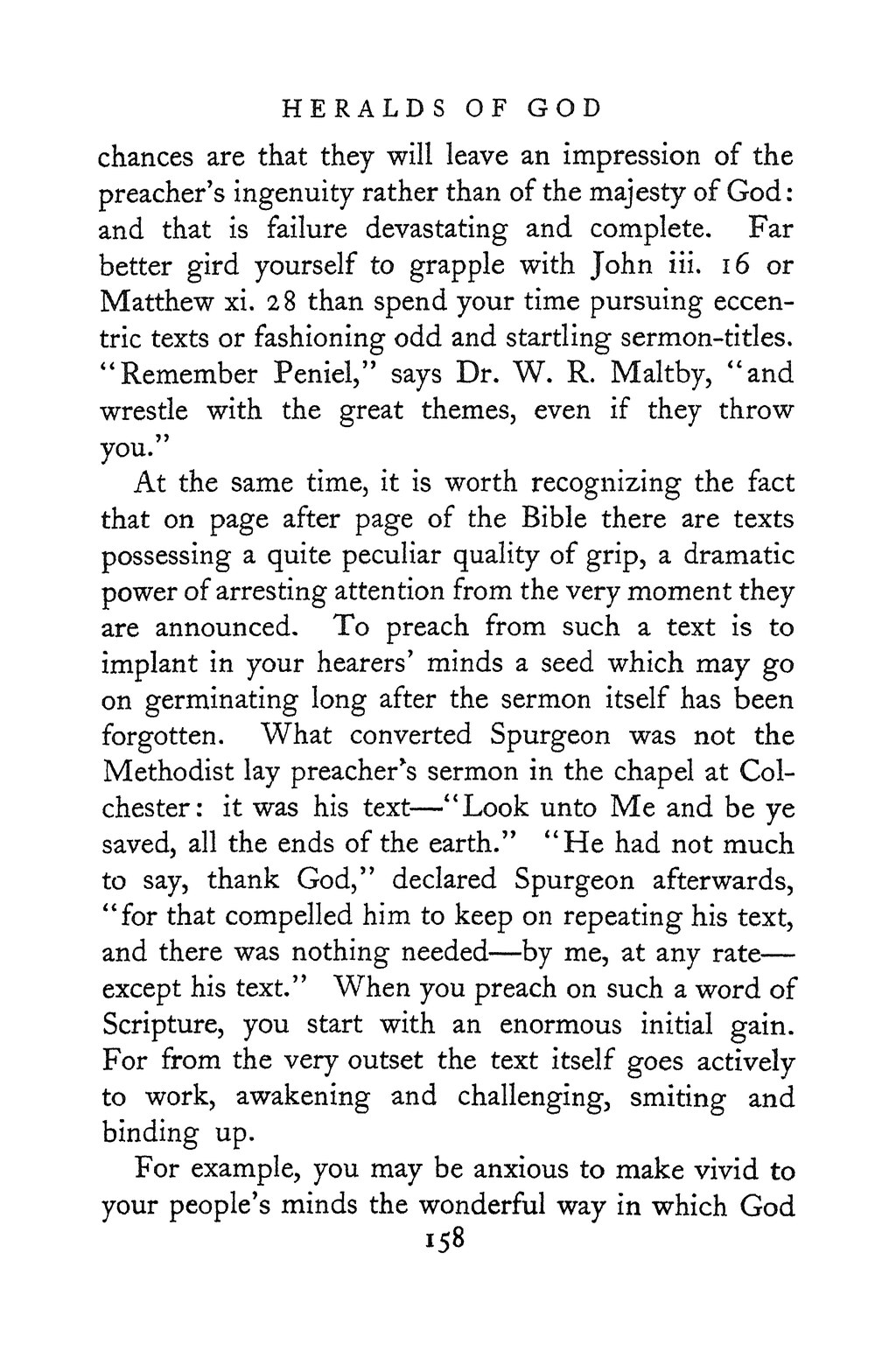HERALDS OF GOD
chances are that they will leave an impression of the preacher's ingenuity rather than of the majesty of God: and that is failure devastating and complete. Far better gird yourself to grapple with John iii. 16 or Matthew xi. 28 than spend your time pursuing eccentric texts or fashioning odd and startling sermon-titles. "Remember Peniel," says Dr. W. R. Maltby, "and wrestle with the great themes, even if they throw you."
At the same time, it is worth recognizing the fact that on page after page of the Bible there are texts possessing a quite peculiar quality of grip, a dramatic power of arresting attention from the very moment they are announced. To preach from such a text is to implant in your hearers' minds a seed which may go on germinating long after the sermon itself has been forgotten. What converted Spurgeon was not the Methodist lay preacher's sermon in the chapel at Colchester: it was his text—"Look unto Me and be ye saved, all the ends of the earth." "He had not much to say, thank God," declared Spurgeon afterwards, "for that compelled him to keep on repeating his text, and there was nothing needed—by me, at any rate—except his text." When you preach on such a word of Scripture, you start with an enormous initial gain. For from the very outset the text itself goes actively to work, awakening and challenging, smiting and binding up.
For example, you may be anxious to make vivid to your people's minds the wonderful way in which God
158
